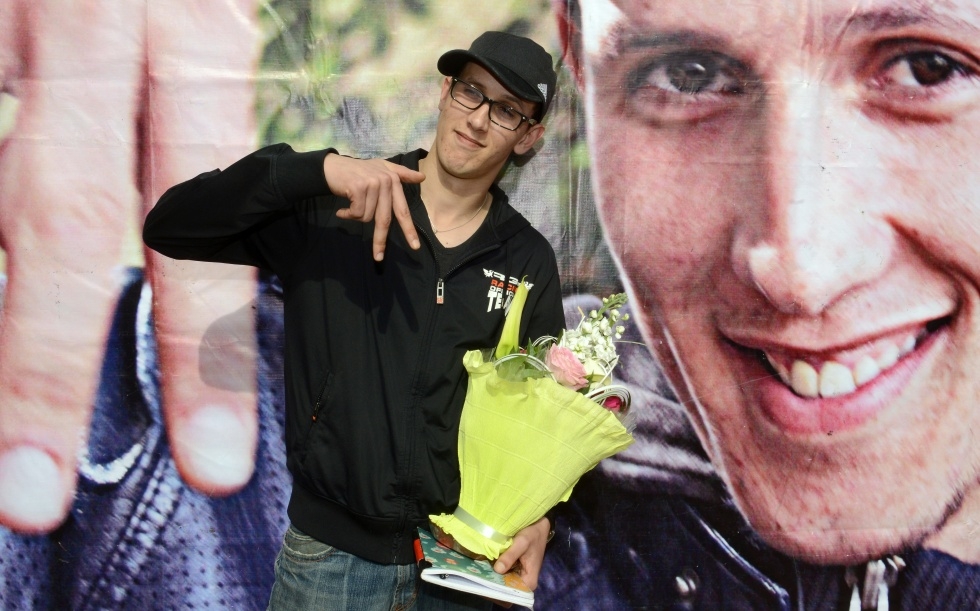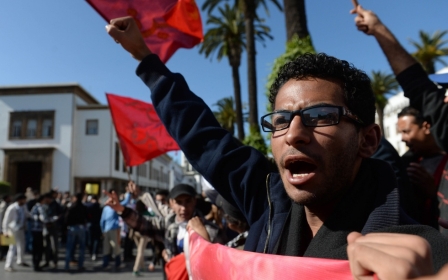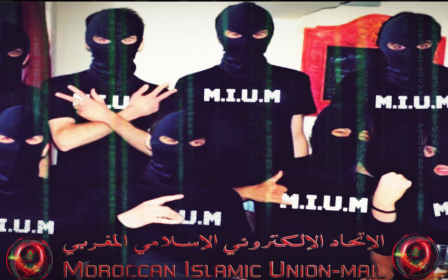Trial of Moroccan rapper rallies pro-democracy movement

A popular Moroccan rapper and political activist appeared in court on Thursday accused of “public drunkenness and assaulting a police officer”. Activists say the charges are cover for an attempt by authorities to silence his criticism of the state.
Mouad Belghouat, also known as el-Haqed (the Enraged), is a 25-year-old hip hop artist who has worked closely with the pro-democracy February 20 movement and is well known for his songs attacking corruption and policy brutality in Morocco.
He was arrested on 18 May at a football stadium in Casablanca and was accused by police of buying black market tickets, according to his brother, Hamza, who witnessed Belghouat's arrest. Hamza says police officers beat Mouad before handcuffing him and taking him to a local station where he was charged.
On Thursday, the trial was adjourned for the fourth time without any significant progress, according to witnesses.
His friends say the charges are disingenuous and accuse authorities of targeting him for his activism and refusing to provide reasons for the trial's delay.
“Mouad is on trial for his political activism and the allegations against him are false in any case,” said Maria Karim, visual artist and friend of Belghouat. “He sings songs that criticise the regime and talks about daily life in Morocco – this is why he is being targeted,” she added.
“By imprisoning him, authorities only serve to promote his activism. Before this latest arrest, I went with him to a small village in the south and he is widely known even there.”
This is the third time Belghouat has been detained, with authorities having previously convicted him for an altercation with a royalist in 2011. He was also sentenced to one year in prison in 2012 on charges that included threatening national security for his song “Kleb al-Dawla” (Dogs of the State). The track’s video included a cartoon of a donkey-headed police officer and featured lyrics criticising police corruption.
“You are paid to protect the citizens, not to steal their money,” says one lyric. “Did your commander order you to take money from the poor?” says another.
His “Baraka Men Skat” (No More Silence) song became the February 20 movement’s anthem, which sparked pro-democracy street protests in 2011 calling for government transparency, judicial reforms and increased opportunities for the country’s youth.
The chorus of “No More Silence” included the lyric: “They exploit our wealth and leave the crumbs for us, while so many freedom fighters died on our behalf.”
King Mohammed VI, the country’s ruler, has responded to calls for political reform by passing a new constitution and promising initiatives to tackle corruption, improve respect for free expression and protect the judiciary’s independence. Protests died down as a result but dissent appears to be rising once more, with 500 demonstrators marching in the capital Rabat on 29 May chanting pro-democracy slogans.
Belghouat’s friend Karim, who is leading a campaign calling for his release, says reforms have failed to deal with systemic issues and police abuse.
“If the media say Morocco has got better because of reforms, it does not reflect the reality of life here,” said Karim. “The truth is things are scary and the tyranny is horrible – many activists have been arrested and detained for up to a year because of taking part in unauthorised protests,” she added.
“There haven’t been any real reforms on the ground.”
Belghouat remains in custody and his next hearing will be on 10 June.
New MEE newsletter: Jerusalem Dispatch
Sign up to get the latest insights and analysis on Israel-Palestine, alongside Turkey Unpacked and other MEE newsletters
Middle East Eye delivers independent and unrivalled coverage and analysis of the Middle East, North Africa and beyond. To learn more about republishing this content and the associated fees, please fill out this form. More about MEE can be found here.



